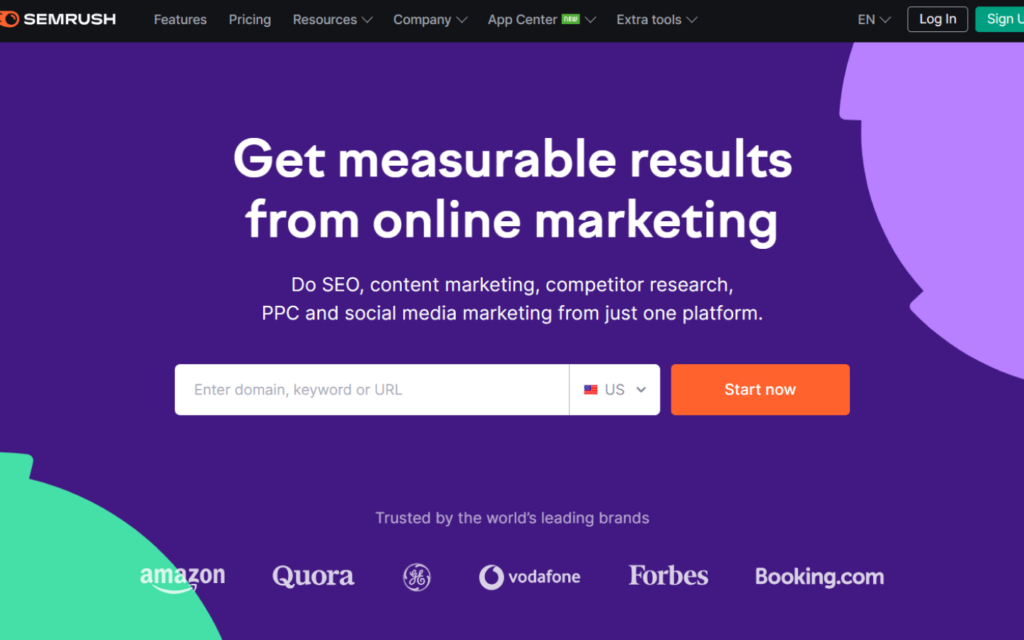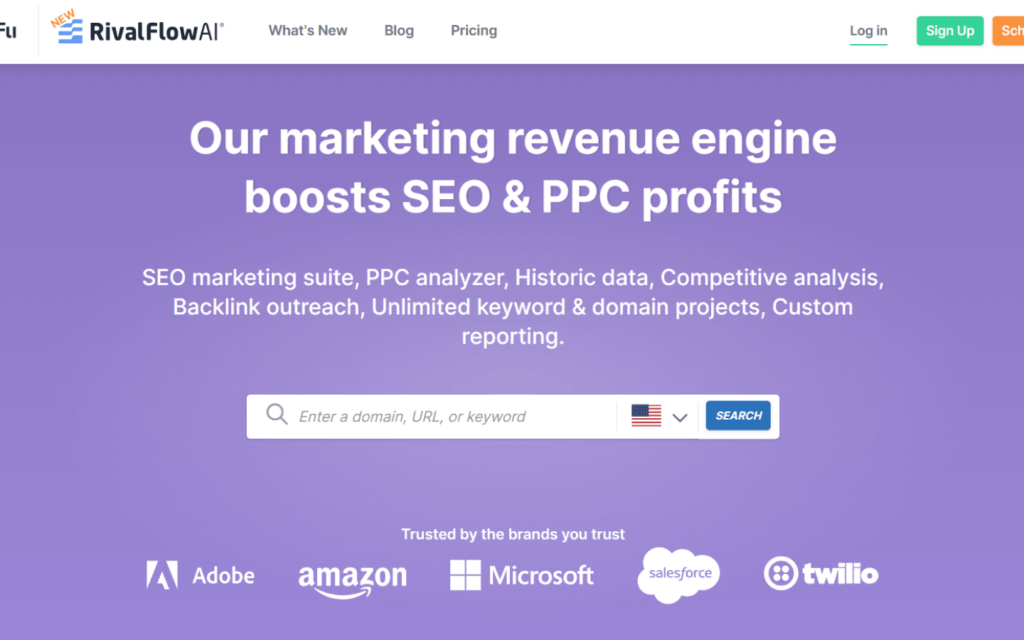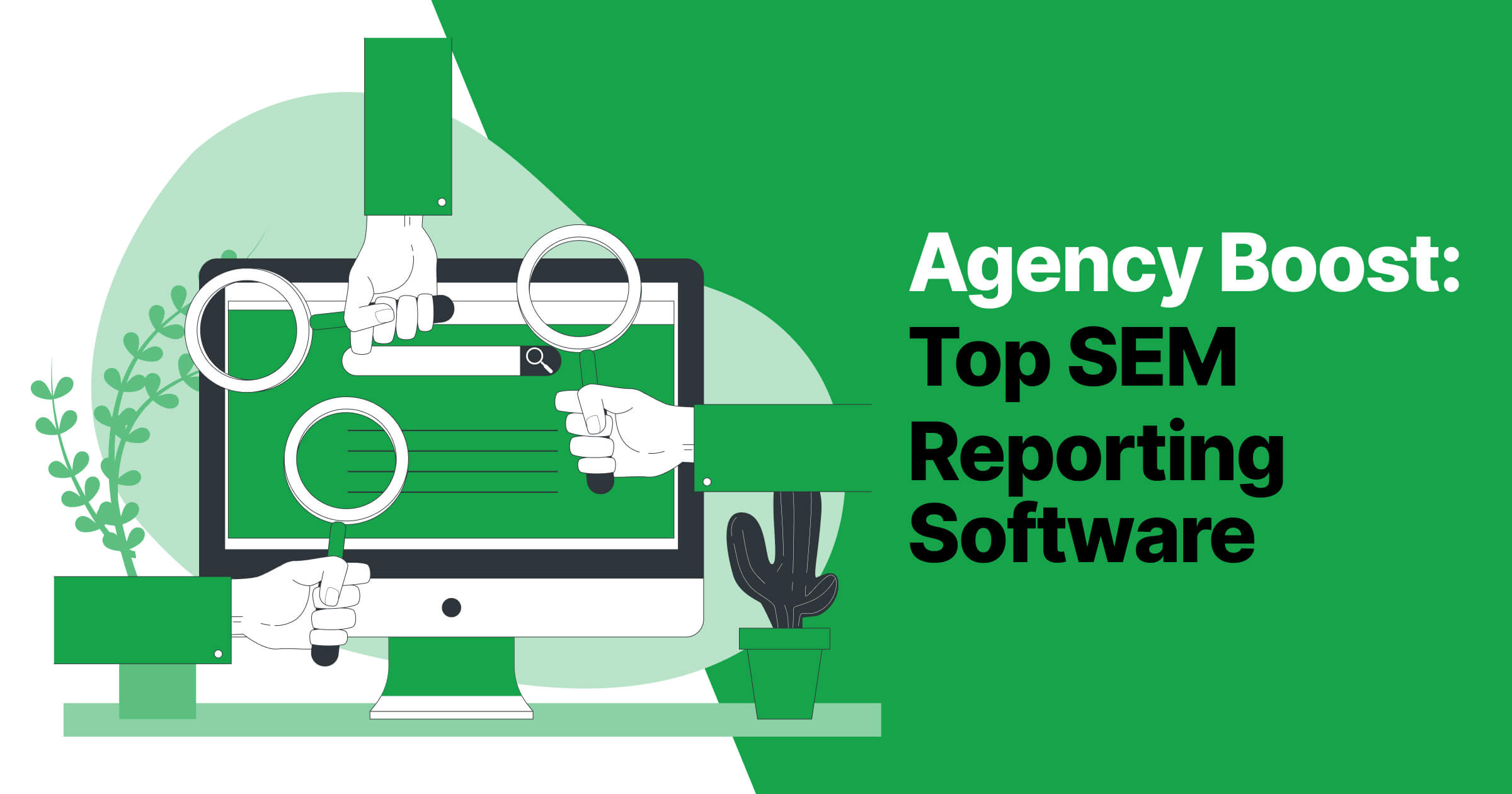Table of Contents
Introduction to Search Engine Marketing Reports
Gone are the days of relying on gut instinct in search engine marketing. Today’s data-driven landscape demands sharp and responsive reporting. Yet many agencies and marketing teams still struggle to gather campaign insights scattered across various platforms. Spreadsheets become overloaded, valuable data gets buried, and reporting takes the back seat to strategy.
Leading marketers are making these reporting tools the heart of their analytics stack. More than just convenient dashboards, the right reporting solution provides complete visibility into your search marketing efforts. Robust analytics and reporting tools track the engagement and ROI of campaigns in real-time across SEO, PPC, social media, and beyond.
In this guide, we’ll unpack the core reporting functionalities that allow search engine marketing reporting solutions to take center stage in any savvy marketing strategy. You’ll learn how these tools consolidate cross-channel data into digestible insights to diagnose underperforming areas and prescribe optimizations. From leveraging custom reporting templates to evaluating month-over-month performance, we’ll showcase best practices for analytics and reporting that help agencies retain clients and boost marketing ROI.
Whether you’re looking to demonstrate campaign value to management or simplify reporting for overwhelmed clients, search engine marketing reporting software provides the keys to mastering search marketing analytics. Let’s explore the tools that are revolutionizing marketing analytics and reporting in the modern age of data-driven search engine marketing.
What is SEM Software and How It Works

Decoding Search Engine Marketing Reporting Solutions
At its core, SEM software collects vital marketing data across key channels and transforms it into actionable insights. No need to dive deep on every feature. I’ll spotlight the key reporting functions for you:
Custom Reporting – Build fully customizable reports tailored to business goals. Track specific KPIs for each client to showcase ROI.
Template Library – Leverage pre-made templates for reports like monthly performance dashboards, campaign analysis, benchmarking and more.
Bring all your analytics together – pull insights from Google Analytics, Facebook Ads, paid search and more under one reporting roof.
Scheduled Reporting – Automatically generate and distribute insights on a set calendar without manual effort.
Data Visualizations – Presents performance analytics through charts, graphs and tables for at-a-glance comprehension.
Campaign Management – Enables adjustments to optimize campaigns based on insights uncovered.
Competitive Intelligence – Provides visibility into competitor strategies and how your SEM efforts compare.
Actionable Recommendations – Leverages AI and machine learning to analyze data and provide recommendations to improve performance.
These core capabilities around tailored reporting, automation, benchmarking, campaign optimization and more empower agencies to showcase ROI for clients. By consolidating analytics in one platform, SEM software spotlights key performance trends through data visualizations and actionable next steps so you can continually fine-tune your SEM approach.
The Mechanics Behind Search Engine Marketing Reporting Tools
Let’s break down how SEM software does its magic. SEM software taps directly into data goldmines like search engines and analytics platforms, scooping up insights. Then, it sorts through this info and lays it out in a way that’s super easy to get. We’re talking about seeing all the key stuff, like how many clicks you’re getting, if people are actually buying, and what you’re paying for each new customer.
Some SEM tools use AI and machine learning to predict trends and spot new opportunities. They can handle things like managing your bids and fine-tuning your keywords automatically, which means less grunt work for you. This is why SEM tools are pretty much a must-have for any agency playing in the big leagues of digital marketing.
Why It’s a Good Idea to Use SEM Tools for Your Search Engine Marketing Reports

The Benefits of Utilizing Search Engine Marketing Reporting Solutions
Let these tools dig through the data and pinpoint exactly what’s hitting (and missing) the mark for your campaigns. It’s like having a 24/7 analyst that never sleeps, constantly dishing out insights on your marketing efforts. Spot the wins and learn from the misses – what does that let you do? Tweak things on the fly, of course! Plus, you get to show off comprehensive reports that make sense to everyone, from the tech wizards to the marketing newbies.
SEM tools don’t just hand over data; they transform it into a roadmap for success. These tools analyze trends, track your rankings, and even peek at what your competitors are up to. It’s all about turning data into actionable insights that can take your marketing game to a whole new level. With these tools in your arsenal, you’re not just reporting numbers; you’re crafting stories of success and strategies for the future.
Harnessing the Power of SEM Software
SEM software provides a versatile set of capabilities to streamline and scale your search efforts. Let’s explore the core functionalities enabling enhanced search marketing success:
Strategic Keyword Planning – Uncover high-potential keywords that target consumer intent based on comprehensive search data and trends.
Optimized On-Page Content – Analyze existing pages and surface optimization opportunities to better attract rankings, traffic, and engagement.
Streamlined Campaign Management – Consolidate paid search and shopping campaigns across platforms for improved organization and efficiency through intuitive dashboards.
Rank Tracking Insights – Monitor positions for targeted key phrases across search engines to maintain visibility and discover threats early.
Competitor Benchmarking – Gain perspective into the search presence, strategies, and dynamics of competitors to inform your approach.
Rather than taking a manual, siloed approach, activate these features as an integrated SEM toolkit. When leveraged effectively, the software serves to systematically improve search relevance, maximize cost efficiency, and accelerate the learning curve – driving sustainable success.
Creating Engaging SEM Reports for Each Client

Search engine marketing reporting software empowers agencies to develop tailored SEM reports that tell a clear story for each client. But what metrics and templates should be included to showcase performance?
Start by examining campaign objectives and determining key performance indicators (KPIs) tied to success. If the focus is on conversions, highlight crucial ecommerce metrics like cost-per-conversion, conversion rate, and revenue in custom reports. For awareness campaigns, showcase impressions, click-through rate, and unique users reached.
Here are some templates to consider when developing client reporting with search engine marketing reporting solutions:
Monthly Performance Dashboard: High-level overview of month-over-month campaign metrics focused on ROI. Include stats like total conversions, cost per conversion, click-through rates, bounce rates, and revenue. Visualize trends over time with charts.
Campaign Health Deep Dive: Granular week-by-week analysis of individual campaign components like keywords and ads. Track metrics like CTR, avg. CPC, impression share, relevancy score. Showcase top and bottom performers.
Benchmark Reporting: Compare important KPIs to internal goals or industry benchmarks. For example, is your SEM campaign actually driving conversions at or above your target cost-per-conversion?
Competitive Analysis: Monitor how your search presence and activity compares to competitors. Analyze their spending trends, keyword strategies, and typical ad positioning.
Platform Performance Breakdown:
Show engagement and ROI across paid search, SEO, social – see what mix works best. Determine optimal platform allocation based on results.
No matter which reporting templates you leverage for clients, the key is customizing analytics and reporting around campaign goals. Enable clients to connect the dots between strategy and performance through clean SEM reporting tailored to their objectives. The power of search engine marketing reporting software lies in elevating data into insights that drive continual optimization.
Secrets to SEM Reporting that Wows Clients
The key ingredients for search engine marketing reports that wow clients? Tailoring with a dash of clarity and visual flair.
Each client has unique analytics and reporting needs tied to their business objectives. Meet those needs with custom reports highlighting the most relevant metrics in easy-to-digest formats. Lean on charts and graphs to spotlight trends. Summarize takeaways so even executives get the gist at a glance.
But don’t stop at polished deliverables. Earn those agency gold stars by walking clients through each reveal during presentations. Field questions, offer clear explanations about how their search campaigns connect to bottom line goals.
When clients fully grasp the marketing analytics and reporting tied to their initiatives, that “aha” moment is your catalyst to strengthen trust and relationships long-term. Demonstrate the full value of your SEM management in reports tailored to showcase ROI shine. The impact on future referrals and retention? Now that’s priceless.

Auto-Pilot Reporting: Your Key to Insight Efficiency
Why manually crunch reporting numbers if automation exists? Save strategic thinking brainpower by streamlining analytics and reporting for self-service efficiency.
SEM software allows you to preset reports for delivery on custom schedules. Configure your ideal reporting package upfront by choosing essential metrics, formats and cadence preferences. Access dynamically generated performance insights on your ideal calendar without ongoing upkeep.
As the search marketing veteran, you decide what key data points matter most. Automated reporting eliminates guesswork for clients as well by supplying a reliable system for tracking and sharing progress. More confidence in the consistent analytics and reporting means less need for hand-holding. That’s a workflow win-win!
With these reports managing themselves, now you’ve earned the freedom to focus on higher-level optimization using the surfaced insights. Let automation lift the burden so you can reclaim precious time while keeping stakeholders informed. Dynamically generated, on-demand analytics empower smarter search marketing all around!
Evaluating the Success of Your SEM Reporting Strategy
Leveraging search engine marketing reporting software is just the first step. To continually optimize your SEM approach, you must closely monitor key metrics to evaluate reporting effectiveness.
Start by examining campaign goal conversion rates on a monthly basis. If the focus is driving ecommerce sales, track metrics like:
- Revenue per paid click
- Cost per acquisition
- Total conversion rate
Compare month-over-month trends and set targets for improvement. If revenues decline despite consistent spending, your current SEM strategy may not be generating the ROI needed.
You can also evaluate engagement metrics to identify weak points. Useful benchmarks include:
- Click-through-rate below 2%
- Bounce rates exceeding 60%
- Negative ROI overall
Low engagement signals opportunities to fine-tune landing pages, tighten messaging, or tweak creative.
Finally, leverage custom reporting in your search engine marketing reporting solution to showcase ROI for specific client accounts. Illustrate how your optimizations increased conversion rates over time. Use visualizations like bar graphs to demonstrate rising revenues month-over-month.
The key is carefully tracking SEM success indicators tailored to your campaign goals. Rather than generic reporting, customize analytics around key business objectives. Showcase your value through sharp improvements in conversion rates, lower cost per lead, and ultimately higher return on ad spend thanks to impact-focused SEM management.
With insightful reporting and continual optimization, your agency can demonstrate the power of expert SEM strategy to current and prospective clients at every step. Measure what matters most to showcase how your services drive real business success.
Introducing the SEM Tool Trinity: Google Keyword Planner, SEMrush, and SpyFu
The array of SEM technologies runs wide, but a select few tools stand out from the pack to form an essential trinity for search marketers. Based on capabilities, flexibility, and extensive adoption, Google Keyword Planner, SEMrush, and SpyFu comprise a powerful toolkit catering to core aspects of running impactful campaigns.
Before diving into the specifics around features and unique strengths, let’s broadly map out what end-goal functionality this SEM tool trinity empowers you to achieve:
- Keyword Strategy marketing project management tools
- Campaign Design & Implementation
- Performance Benchmarking
- Competitor Tracking & Analysis
United together, this toolbox delivers an end-to-end framework for optimizing ideation, streamlining workflow, and stacking the deck for search success.
Now that we’ve touched on the pillars provided by these three critical tools in unison, let’s explore each separately and showcase how their respective capabilities can instrument your next search breakthrough.
SEMRush: Search Intelligence to Outmaneuver Competitors

SEMRush dominates as an end-to-end search marketing intelligence platform, arming brands with actionable data insights needed to outperform competitors. By harnessing the comprehensive SEMRush suite, agencies and marketing teams alike can:
Pinpoint High-Potential Opportunities
Leverage robust keyword research tools tapping into rich search data to identify incremental customer demand opportunities hiding in plain sight.
Benchmark and Optimize Performance
Connect the robust analytics dots with customized reporting tools to showcase how campaigns deliver against success metrics and guide impact-focused optimization.
Spy on Competitors
Gain an unfair competitive advantage by analyzing competitor behaviors, strategies, and trends fueling their success so you can adapt and excel.
The platform spans core features like rank tracking, backlink analysis, campaign analytics, and custom reporting for search, social media, and broader digital efforts. Rounding out the capabilities, content marketing support, client management functionality, and workflow enhancing integrations streamline operations.
Google Keyword Planner: Unparalleled Insights into Customer Search Intent

As Google’s homegrown keyword research apparatus, Google Keyword Planner grants unrivaled data access, revealing customer search patterns and intent crucial for SEM success.
Unlike 3rd party solutions with fragmented Google data access, unlock exclusive insight into actual search queries and volume through robust keyword research functionality. By tapping directly into the source, identify precise target keywords and granular search trends fueling success for competitors.
These exclusive dataset-driven capabilities empower tailored campaign planning, helping teams connect the dots between exact customer searches and content gaps to build higher performing strategies. Ongoing search volume tracking and competitor benchmarking then enables continual optimization of both SEM and SEO efforts for sustained relevance over time.
Additional functionalities like search performance forecasting, geographic and language targeting, integrated Google Ads workflows cements Keyword Planner as an indispensable analytics asset for any business playing in Google’s ecosystem.
SpyFu: Uncover Competitors’ Winning Tactics to Get Ahead

With SpyFu, core capabilities span across not just understanding the keyword; content and link building strategies in play. Augmented tracking functionality monitors ranking dynamics and site performance shifts in real-time to sniff out emerging opportunities. Federating these rich signals over time enables analysis of historical trends and even prediction of next moves based on past behaviors with similar signals.
Supporting competitive research features round out a platform enabling brands to benchmark performance inward and outwardly, ultimately taking cues from competitors’ successes while tracking progress toward mirroring or exceeding their feats.
SEM Solutions for Every Search Need
Beyond the core platforms explored, an array of complementary SEM tools exist to address specialized tactical needs:
DataFeedWatch – Offers robust PPC automation uniquely tailored to ecommerce shops with product feed inventory driving large-scale dynamic campaigns.
Optmyzr – Equipped with advanced campaign management capabilities ideal for enterprise teams managing SEM programs with bigger budgets and scale.
SE Ranking – Delivers website health insights and local SEO tracking functionality that round out holistic optimization efforts.
While individual needs dictate tool consolidation, exploring these specialized solutions can patch specific capability gaps that arise over the campaign growth curve. As search initiatives mature in sophistication, single tools may not address every emerging capability requirement – hence the value of a tailored martech blend.

Final Word on Search Engine Marketing Reporting Software
As search engine marketing continues to evolve, reporting capabilities make or break campaign success. While many agencies still rely on manual tracking and basic dashboards, the most innovative marketers are embracing advanced SEM reporting tools to gain a competitive advantage.
By leveraging best-in-class analytics and automation, SEM software provides unmatched visibility into paid and organic performance across every major platform. Tailored reporting templates, scheduled report distribution, data visualizations, and integrated campaign optimization enable agencies to showcase ROI for every client.
The key advantage lies in consolidated data analytics from Google Analytics, call tracking platforms, social media, and more feeding into a single source of truth. Machine learning crunches the numbers to serve up actionable insights on tweaking budgets, landing pages, ad creative, and beyond.
The result? Powerful visibility that tells the story of each client’s SEM success through compelling reports designed to resonate with CMOs and stakeholders. Agencies can demonstrate continual optimization, improving campaign efficiency quarter by quarter.
In today’s world, reporting capability fuels search marketing victory. Cut complexity and manual tracking by embracing an SEM reporting software built for innovation. Claim the competitive edge with analytics that spotlight performance trends in real-time. The future of state-of-the-art SEM reporting starts now.
Frequently Asked Questions about Search Engine Marketing Reporting Software
What Are SEM Reports?
SEM reports are detailed documents that analyze the performance of search engine marketing campaigns. They track various metrics like click-through rates, conversion rates, and overall ROI to provide insights into how effectively a campaign is running.
Why Are SEM Reports Important for Digital Marketing?
SEM reports are vital for digital marketing as they offer concrete data on the effectiveness of marketing strategies, allowing marketers to make informed decisions, optimize campaigns, and allocate resources more efficiently.
How Often Should I Generate SEM Reports?
The frequency of SEM report generation can vary depending on the business goals and the dynamics of the campaign. Typically, monthly reports are common, but more frequent reports (weekly or even daily) may be necessary for more active campaigns.
What Key Metrics Should I Include in My SEM Reports?
Key metrics for SEM reports should include Click-Through Rate (CTR), Conversion Rate, Quality Score, Cost Per Click (CPC), Total Ad Spend, and Return on Ad Spend (ROAS).
How Can SEM Reports Improve My Marketing Strategy?
SEM reports can improve marketing strategies by providing insights into what is working and what isn’t. This allows marketers to refine targeting, adjust budgets, and optimize ad copy and keywords based on performance data.
What Tools Are Used to Create SEM Reports?
Common tools for creating SEM reports include Google Analytics, SEMRush, Google Ads, SpyFu, and Moz. These tools provide extensive data and analytics capabilities for detailed reporting.
Can SEM Reports Help in Understanding Competitor Strategies?
Yes, SEM reports can include competitor analysis, giving insights into the strategies and performance of competitors. This information can be crucial for adjusting your strategies to stay competitive.
How Do I Interpret Data from SEM Reports?
Interpreting data from SEM reports involves analyzing trends, understanding key performance indicators, and comparing current data with historical performance. It’s important to focus on metrics that align with your business goals.
What’s the Difference Between SEM and SEO Reports?
SEM reports focus on paid search marketing efforts, analyzing data from pay-per-click campaigns, while SEO reports focus on organic search performance, including traffic, keyword rankings, and organic search visibility.
How Can I Customize SEM Reports for Different Audiences?
Customizing SEM reports involves highlighting different metrics and insights based on the audience. For executives, focus on ROI and overall performance, while technical teams may need more detailed data on specific keywords or ad groups.
Are There Automated Solutions for SEM Reporting?
Yes, there are automated solutions for SEM reporting. Tools like Google Data Studio, SEMRush, and others offer automation capabilities, allowing for scheduled report generation and real-time data updates.
How Do I Measure the ROI from SEM Campaigns Through Reports?
To measure ROI from SEM campaigns, calculate the total revenue generated from the campaign and subtract the total cost of the campaign. Divide this number by the total cost of the campaign and multiply by 100 to get the ROI percentage. This can be tracked over time in SEM reports.
